SUMMARY
This is AI generated summarization, which may have errors. For context, always refer to the full article.
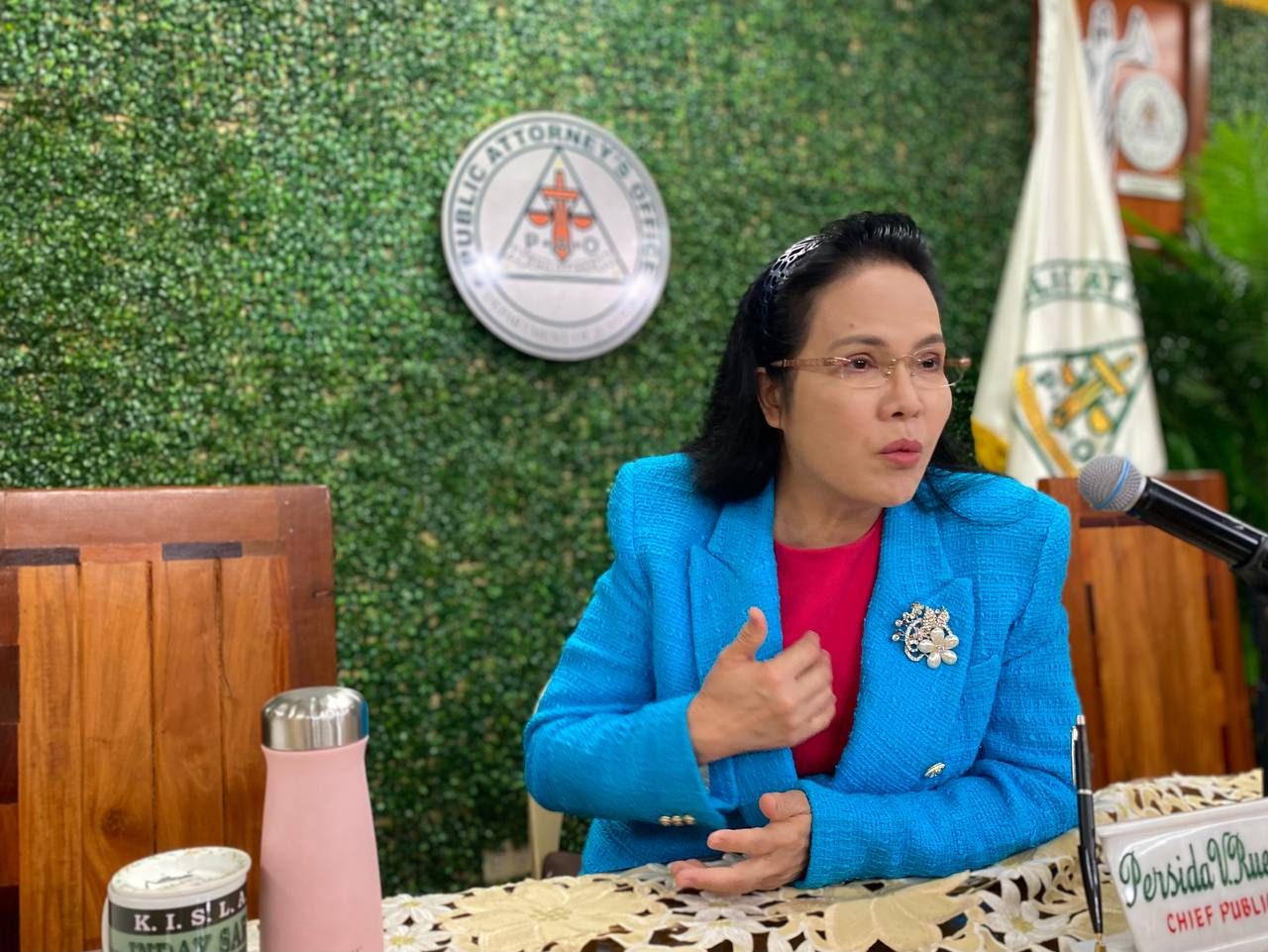
MANILA, Philippines – The inability of the Public Attorney’s Office (PAO) to file more cases against the police in the bloody drug war stems from the unwillingness of witnesses to come forward and testify out of fear.
This confirms earlier findings of the International Criminal Court (ICC), which has been investigating killings related to the drug war.
In one public redacted annex of the ICC, it said that even recent pronouncements of the Marcos administration on the war on drugs “leave the victims and their families fearful of the government and its security forces. […] The victims and their families continue to live in fear of retaliation from security forces and the government in general. […] Independently, the Philippines’ Commission on Human Rights […] found that victims are unwilling to cooperate due to fear of reprisal.”
In a sit-down interview with Rappler a week ago, Acosta said her office wanted to file cases up to the top police commanders, but they did not have witnesses in other cases: “I wanted to file cases up to the, say, the top levels pero ang ebidensiya hanggang doon lang sa mga pumatay na pulis (but the evidence was only up to the level of the police who killed the victims).”
During the early years drug war, most of the killings were concentrated in the cities of Manila, Caloocan, and in San Jose Del Monte in Bulacan. In 2018, Central Luzon had the most number of drug war deaths, followed by Calabarzon and Metro Manila.
Some police commanders also caught public attention due to the bloody campaign. For instance, in 2018, vigilantes named then-police superintendent Robert Domingo of Manila police station 1 as one of the police officers who ordered the killings of criminals and drug suspects from late 2016 to early 2017.
Acosta, who runs the office responsible for providing legal assistance to indigent clients and people in need, said they did not want to file cases with insufficient evidence. In most cases, threats against, and fear on the part of witnesses prevented them from cooperating with probes.
“Kasi ayokong mag-file ng case without evidence… At saka sa PAO, we don’t file criminal cases for the victims without merit. Well, talaga, talagang siya ay pinatay o talagang may eyewitness. Ay takot naman kasi sila eh, kasi buong barangay minsan conflicted sila. Ang hirap kumuha ng witness,” Acosta said.
“Mahirap kumuha ng testigo sa drug war kasi ang kalaban mo riyan baril eh, puwede ka ring mamatay,” she added.
(I don’t want to file a case without evidence. And in PAO, we don’t file criminal cases for the victims without merit. Well, unless, the person was really killed or there really was an eyewitness. But, some of the witnesses were afraid, sometimes the whole village was conflicted. It’s hard to get a witness. It’s hard to get a witness in the drug war because you fight with guns, you can be killed.)
Few convictions
Based on available data, the PAO handled a total of 1,669,508 drug-related cases, and served 1,761,277 clients from 2017 up to the first half of 2023. This number covered all cases related to Republic Act No. 9165 of the Comprehensive Dangerous Drugs Act of 2002, including those filed by PAO against the police linked to the drug war.
From 2019 to 2022, the PAO had 992,524 favorable cases – meaning their clients won against the other party, were acquitted, got a lower sentence, or completed their sentences – drug war cases included. But in terms of winning drug war cases against cops, the only successful cases were those of Kian delos Santos, Carl Arnaiz, and Reynaldo “Kulot” de Guzman – despite the over 27,000 killed.
This small number of convictions was also mentioned by the ICC as Prosecutor Karim Khan said the cases submitted by the Philippine government to the Court were “very few” compared to the total number of recorded “killings.” Khan added that the cases focused only on low-ranking cops and physical perpetrators, without investigating high-level assailants.
In 2018, the court found police officers Arnel Oares, Jeremias Pereda, and Jerwin Cruz guilty of killing Delos Santos. Arnaiz and De Guzman were convicted in 2017, but it was only in November 2022 when a Caloocan court convicted Patrolman Jefrey Perez for torture and planting of evidence in relation to their killings. A few months later, in March 2023, a Navotas court also convicted Perez for his involvement in the murders of Arnaiz and De Guzman.
The Philippine drug war panel probing the drug war said in 2021 that it was difficult to file cases without witnesses. In the context of these killings, families of drug war victims pin their hopes on the ICC instead of filing cases in local courts due to fear and anticipated harassment.
Moving forward
When asked if there had been political pressure exerted on her in relation to the drug war, Acosta said there was none. The PAO chief said, however, she does not approve of the drug war killings.
“‘Di ko ini-sponsor at ‘di ko ina-approve ‘yung papatayin mo nang walang awa unless talagang may baril na nakikipagbakbakan ‘yung tao. Eh talagang wala tayong magagawa do’n, state of necessity ng pulis,” Acosta said. (I do not sponsor, I do not approve of mercilessly killing people, unless they have a gun and are fighting back. When a policeman is put in such a situation, we can’t do anything about it.)
Acosta said that to help drug war victims, a separate entity probing the police should be strengthened, like the Commission on Human Rights (CHR).
“‘Pag pulis ‘yung respondent, talagang mahirap magtiwala ‘yung tao. So kailangan merong isang entity na gagawa ng trabaho na ‘yun, imbestigasyon, ‘pag pulis ang gumawa (If the respondents are police, it’s really hard for people to trust the system. So there should be another entity that will probe crimes committed by the police,” the PAO chief said.
The CHR was created by the 1987 Constitution as an independent commission – meaning, it is free from the influence of the rest of the government. Part of its mandate is to probe the abuses committed by the state, including police abuses. – Rappler.com
Add a comment
How does this make you feel?
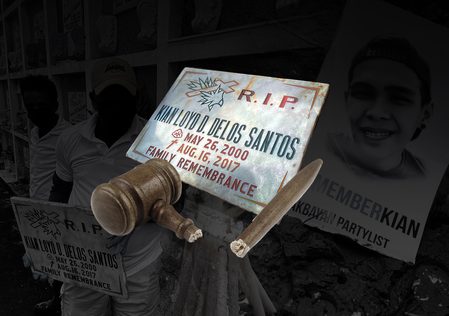
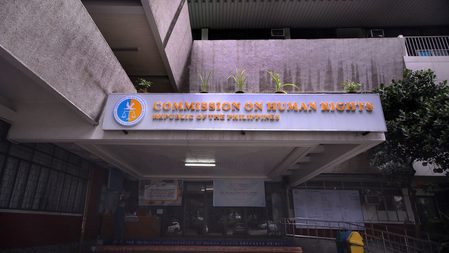
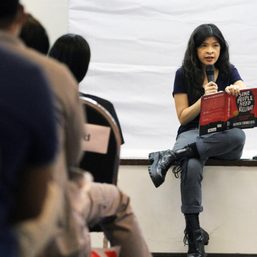



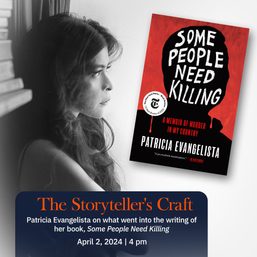

![[Rappler’s Best] Patricia Evangelista](https://www.rappler.com/tachyon/2024/04/unnamed-9-1.jpg?resize=257%2C257&crop=486px%2C0px%2C1333px%2C1333px)


There are no comments yet. Add your comment to start the conversation.